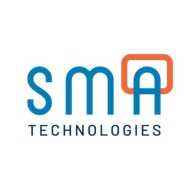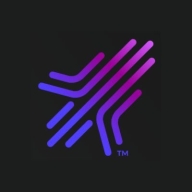

OpCon and Rocket Zena are competing automation platforms for enterprise clients. OpCon edges ahead in pricing and support, while Rocket Zena's robust features justify its investment.
Features: OpCon's features include workflow automation, comprehensive scheduling management, and an easy interface. Rocket Zena offers integration flexibility, scalability, and advanced scheduling capabilities.
Room for Improvement: OpCon could enhance its learning resources, increase integration options, and improve its mobile interface. Rocket Zena could reduce its initial setup complexity, streamline update processes, and offer better support for non-technical users.
Ease of Deployment and Customer Service: OpCon provides a straightforward deployment process with responsive customer service. Rocket Zena has a steeper learning curve but offers extensive customer service options aiding complex integrations.
Pricing and ROI: OpCon offers a cost-effective setup with a quick ROI, suitable for smaller-scale implementations. Rocket Zena requires a higher initial investment but delivers significant ROI through its advanced features and integration possibilities.


OpCon automates batch processing, core system operations, file transfers, and daily processing. Integrated across Unisys, Windows, and cloud systems, OpCon is used in financial institutions, credit unions, and multi-platform environments for job scheduling, report generation, SQL queries, scripting, and FTP processes, handling thousands of jobs daily.
Users value OpCon for comprehensive automation capabilities, particularly the scheduling feature that allows advance planning and streamlined workflows. The self-service functionality enables non-IT staff to manage tasks efficiently. OpCon's integration with core banking systems, robust job management, and error notification system significantly improve operational efficiency. Features like Solution Manager enhance accessibility and control, ensuring process continuity and ease of use.
What are the Key Features of OpCon?
What Benefits Should You Look for in Reviews?
Users find OpCon complex with a steep learning curve. Desired improvements include better separation of environments, enhanced graphical display, finer user authorization, simpler notification and alerts, more templates, increased web functionality, seamless interface, integration tools, online training, smoother scheduling, better reporting, mobile accessibility, smarter self-service, improved mainframe support, and integration with third-party systems. Pricing model and licensing could be more streamlined.
In financial institutions and credit unions, OpCon is implemented to handle thousands of daily jobs, automate internal processes, and integrate workflows across various platforms. It ensures secure file transfers, generates detailed reports, executes SQL queries, and supports seamless third-party integrations.
Rocket Zena automates and schedules tasks across mainframe, Linux, and Windows environments, reducing human errors and managing dependencies.
Rocket Zena serves as a powerful tool for scheduling and automating tasks across multiple platforms. Its capabilities extend to managing batch jobs, ETLs, SFTP transfers, database backups, organizing workflows, running scripts, managing payroll tasks, and customizing schedules to avoid manual interventions. Users benefit from a user-friendly interface and efficient containerized deployment with clear process visualization through diagram and whiteboard features. The platform supports file transfers, automates workflows, saves time, and reduces errors, with straightforward licensing and commendable technical support.
What are the most important features?Rocket Zena sees implementations in industries requiring robust task scheduling and automation such as finance for managing payroll and database backups, healthcare for handling ETL operations and workflow organization, and IT for running scripts and managing batch jobs. Adaptation to industry-specific needs showcases its versatility, although users seek improvements in scheduling mapping, UI navigation, and desire cloud availability.
We monitor all Workload Automation reviews to prevent fraudulent reviews and keep review quality high. We do not post reviews by company employees or direct competitors. We validate each review for authenticity via cross-reference with LinkedIn, and personal follow-up with the reviewer when necessary.